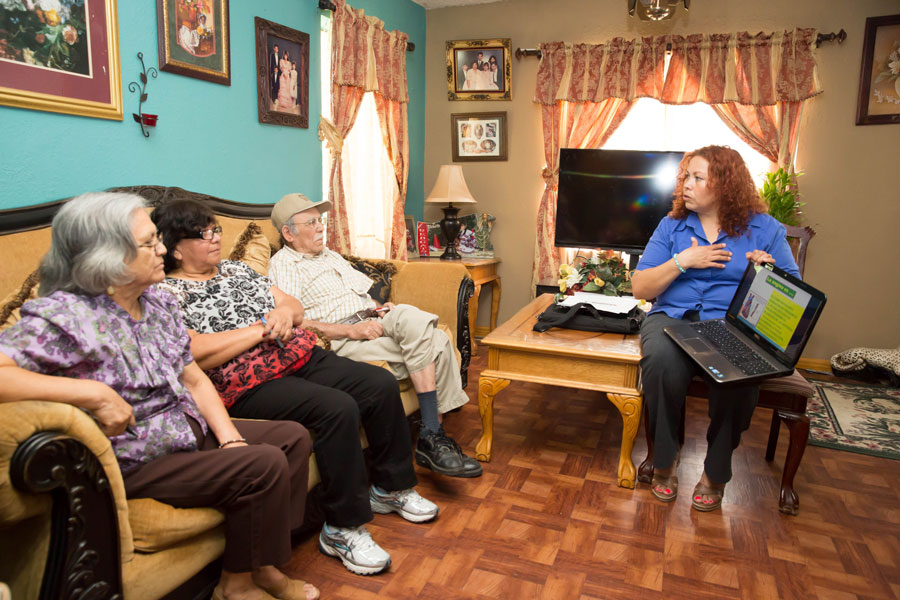Study finds diabetes program improves depression symptoms in Mexican Americans


MinJae Lee, PhD, professor in the Department of Internal Medicine, and a team of researchers from UTHealth Houston School of Public Health have found that Salud y Vida, a community clinical diabetes program in the Rio Grande Valley, was linked to significant reductions in depression symptoms among low-income Mexican Americans living with Type 2 diabetes.
The study, published in the Journal of Primary Care & Community Health, followed 292 Salud y Vida participants over 12 months, noting that depression scores decreased by 41% within the first six months and remained low at one year.
Salud y Vida is an evidence-based chronic care management program for low-income, uninsured individuals with Type 2 diabetes. The program includes social support by community health workers and community clinic partnerships to address social determinants of health. Among those with depression at the start, scores fell below the clinical threshold by the end of the program. The percentage of participants needing a mental health referral dropped from 36% to 18% within six months.
A total of 292 adults with diabetes joined the Salud y Vida program and completed three questionnaires throughout their participation: one at the start, one after six months, and the last after a year to assess their depression symptoms. Researchers reviewed these patient health questionnaire results and conducted analyses to evaluate changes in depression scores over time, adjusting for demographic and clinical factors.
“The program’s effectiveness is attributed to its integration of medical care with home visits delivered by community health workers. While the reductions in depression were observed as a secondary health effect of this diabetes-focused program, Salud y Vida intentionally incorporated elements that supported mental health,” Lee said. “Mental health resources made available to participants included depression assessments and referrals to the local mental health authority, local clinic, or community counseling services when needed.
“All community health workers received training in motivational interviewing, which they used during quarterly home visit. This approach enabled them to explore specific social needs related to depression and connect participants with relevant resources that might otherwise be overlooked in traditional clinic settings,” Lee said.
These findings highlight a promising framework for enhancing both mental and physical health outcomes in underserved communities across the country.
The research team included Lee; Joseph Conroy, MPH; Zihan Yang; Sein Lee; Paul Yeh; MD, DrPH; Juliana Lopez, MPH; Natalia Heredia, PhD, MPH; Lisa Mitchell-Bennett, DrPH; Maribel Sifuentes; and Belinda Reininger, DrPH.